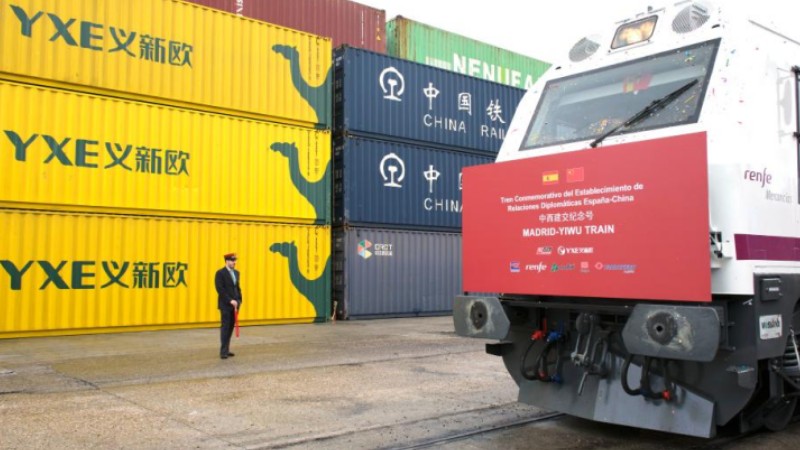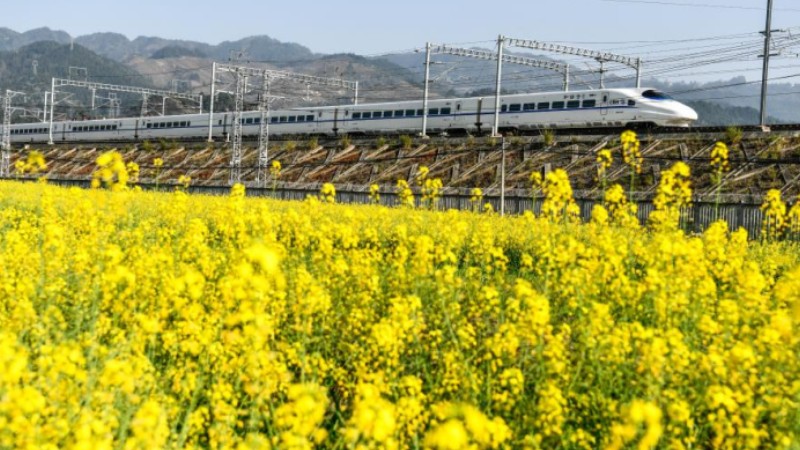China's new cabinet lineup decided at top legislature
With key positions of Chinese central government being endorsed at the national legislature, Chinese observers believed that the major agenda of the central government will be steering the economy recovery and boosting market confidence.
Chinese President Xi Jinping signed a presidential order appointing Li Qiang as premieron Saturday morning at the first session of the 14th National People's Congress (NPC), China's national legislature.
NPC on Sunday also endorsed the new lineup of the State Council, or China's cabinet, at its annual session. The new cabinet lineup, which retains central bank governor and financial minister in their posts while appointing several ministers with corporate executive backgrounds, shows the government's respect for professional knowledge while giving full consideration to continuity of policies, experts said.
They also said that the new ministerial officials will steer China toward a robust economic growth this year to achieve its proposed GDP growth target of around 5 percent.
According to a report from the Xinhua News Agency on Sunday, vice premiers, state councilors, ministers, governor of the central bank, auditor-general, and secretary-general of the State Council were endorsed by lawmakers at the fifth plenary meeting of the first session of the 14th National People's Congress (NPC). Chinese President Xi Jinping signed a presidential order to appoint these officials.
China has kept several ministers in their posts, including Minister of Finance Liu Kun and Transport Minister Li Xiaopeng.
Yi Gang, 65, was also approved by the NPC to stay on as governor of the People's Bank of China (PBC), China's central bank. Hou Kai was appointed as auditor-general of the National Audit Office.
The appointment came one day after Xi signed a presidential order appointing Li Qiang as China's premier.
Guiding economic growth
The appointments have inspired a great deal of confidence as well as high hope among market observers that the new cabinet lineup will steer China toward full-fledged economic recovery after the country walked out of a lengthy economic trough following the optimization of coronavirus management measures and as the COVID situation stabilizes.
"The appointments reflect the central government's respect for professional knowledge, science and technology, and the law of economic development, meanwhile it also show that the Party and the government have given full consideration to the continuity and stability of policies when considering candidates," Wang Jun, an expert at the China Center for International Economic Exchanges in Beijing, told the Global Times on Sunday.
Dong Shaopeng, a senior research fellow at the Chongyang Institute for Financial Studies at Renmin University of China, also told the Global Times on Sunday that the appointment of those ministerial heads reflects the unity of political and professional requirements, as those ministers have been well tested and accumulated a lot of experience in their corresponding fields.
It's worth noticing that several ministers have served as senior company executives in relative industries in the past. For instance, Jin Zhuanglong, head of China's Ministry of Industry and Information Technology, was chairman of the Commercial Aircraft Corporation of China.
Wang Zhigang, the Minister of Science and Technology (MST) alsos erved as general manger of the China Electronics Technology Group Corporation.
According to Wang Jun, appointing officials with professional quality is a very important link to ensuring the prosperity of the country's cause.
"Talents with scientific and technological backgrounds and professional experience can better understand and implement the Party's strategic deployment, which is also helpful to achieving China's goal of high-quality development," Wang said.
Last week, China unveiled a sweeping reform plan for a slew of state institutions with a focus on restructuring the MST and establishing a national financial regulatory administration. With the transferring of functions such as technology policymaking for the agricultural sector to other ministries, the MST is tasked primarily with a bigger role - to improve a new system for mobilizing the nation to make technological breakthroughs.
Kang Yi, head of China's National Bureau of Statistics, said on Sunday during an interview that he is confident of China's general economic improvement this year and the country's ability to achieve around 5 percent economic growth target based on his judgment on China's economic development fundamentals and observation of China's economic operation trend in the first two months this year.
He also said that China will have wide development space and potential seen in the medium to long-term perspective, according to a report of the chinanews.com.
Cao Heping, an expert from Peking University, also told the Global Times on Sunday that judging by China's economic data and implementation of new economic policies in the first quarter, this year's GDP growth goal is not difficult to achieve.
Focus on financial stability
According to the experts, the decision to keep Yi Gang on his post is also a reflection of the country's stress on financial stability at a time when financial fluctuations are intensifying on global markets. Yi Gang was appointed PBC governor in March 2018.
"Firstly, it affirms the contributions and achievements made by these officials in their previous posts, which is a high recognition of their professionalism. At the same time, it also represents that China's basic policies remain unchanged, which emphasizes continuity and stability," said Wang Jun.
Yi Gang repeatedly stressed the importance of keeping financial markets stable in public speeches. At a recent press conference, he said that the PBC aims to keep the yuan basically steady against the US dollar, leaving the market to drive small fluctuations in the exchange rate.
China has set up a national financial regulatory administration as part of the aforementioned institutional reforms, reflecting the country's continued efforts to tackle financial risks. Directly under the State Council, the proposed administration will be in charge of regulating the financial industry except the securities sector.
Experts also stressed that it's uttermost important to keep financial market stable when external market fluctuations are widening amid global economic slowdown, US interest rate hikes and geo-political tensions. On Friday, Silicon Valley Bank collapsed in the largest US bank failure since the 2008 financial crisis, stranding billions of dollars belonging to companies and investors.
China online delivery giant Meituan clarified on Sunday that the event has no impact on the company's business after rumors spread about the company's deposits being trapped in the bank.
According to Cao, lack of financial regulation had led to some financial chaos in China like peer-to-peer lending, which exerted negative impact on normal development of the economy.
"Therefore, in the financial sector, on the one hand, excessive regulation should be avoided, and on the other hand, inadequate regulation should be avoided as well," he said, adding that the first step of regulation should be "unifying (regulation) of central and local governments.
"It's easy to mess up a basketball court with two referees blowing the whistle," he said.
Dong Shaopeng also stressed that the tone of China's financial work is and will be stability, including that China must retain monetary policy independence.
"China's economic and financial development is under dual pressure of external hegemony and insufficient growth impetus, and the task of internal structural adjustment is also very tough We need professional officials to coordinate resources and strength to tackle those challenges," he said.
Photos
Related Stories
- China's national legislature adopts revision to legislation law
- China's national legislature holds closing meeting
- Schedule for China's NPC session on March 13
- Gov't work report, other documents to be put to vote Monday
- China's national legislature decides on new cabinet lineup
- List of key officials of China's State Council
- Ministers interviewed after 5th plenary meeting of 1st session of 14th NPC
- Liu Jinguo elected director of National Commission of Supervision
- Ying Yong elected procurator-general of China's Supreme People's Procuratorate
- Zhang Youxia, He Weidong endorsed as vice chairmen of PRC Central Military Commission
Copyright © 2023 People's Daily Online. All Rights Reserved.









